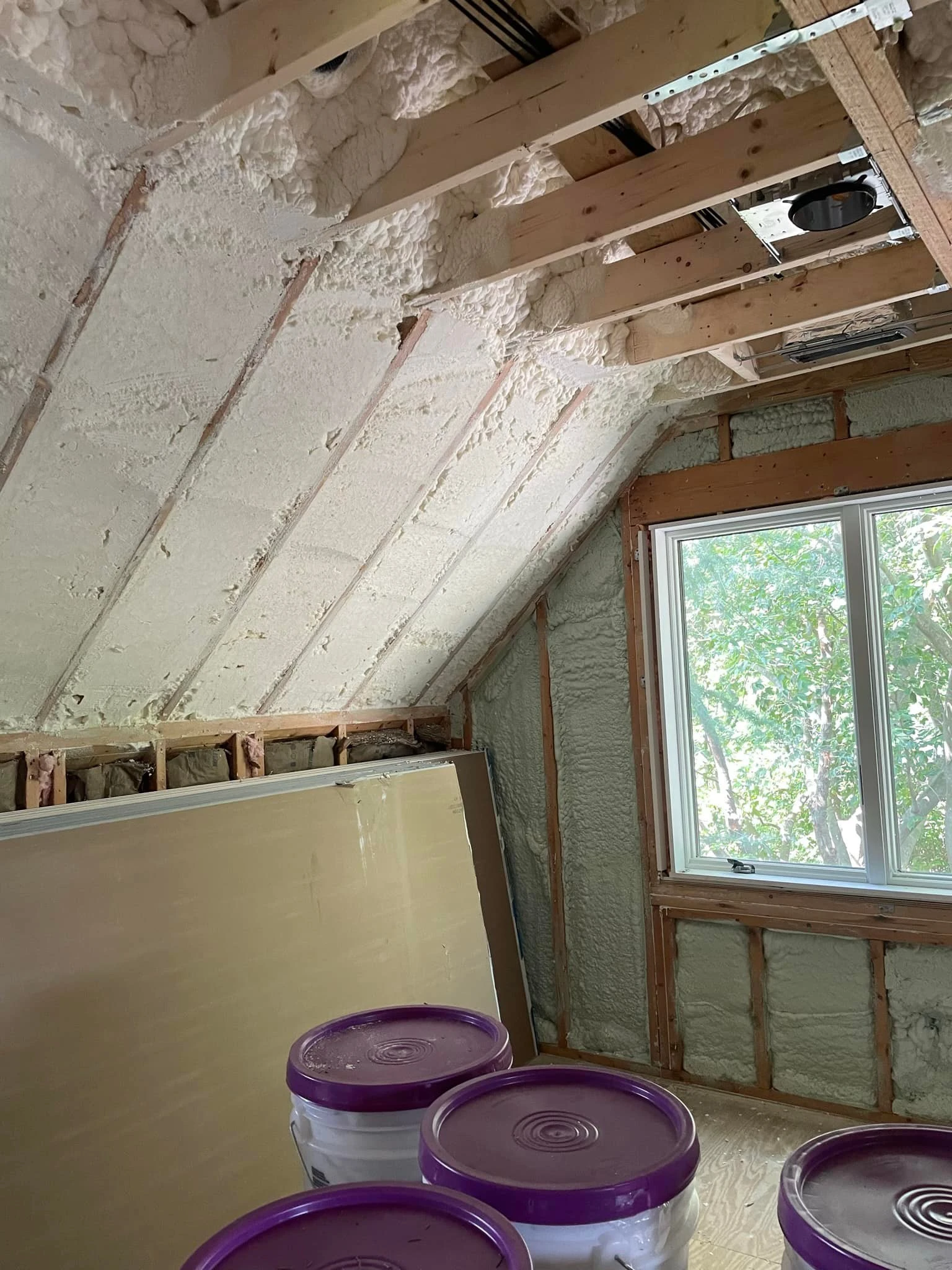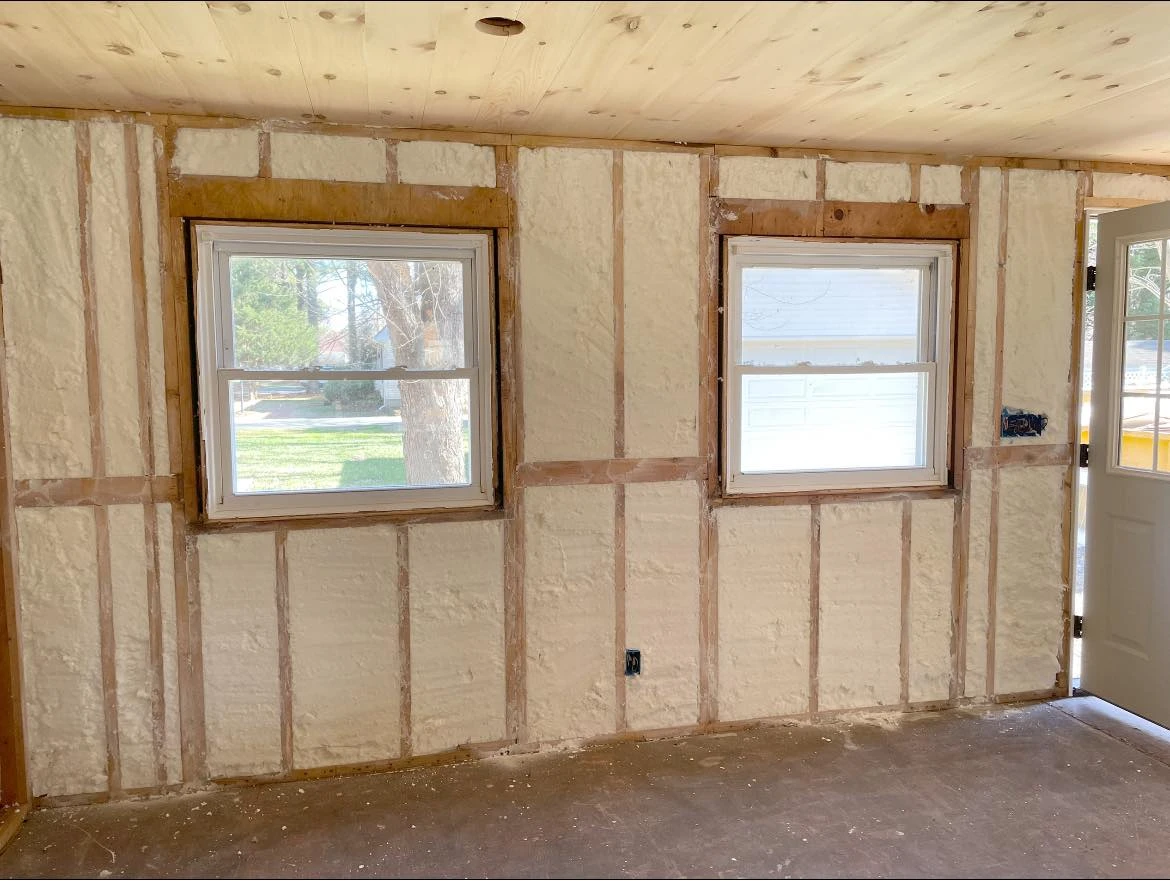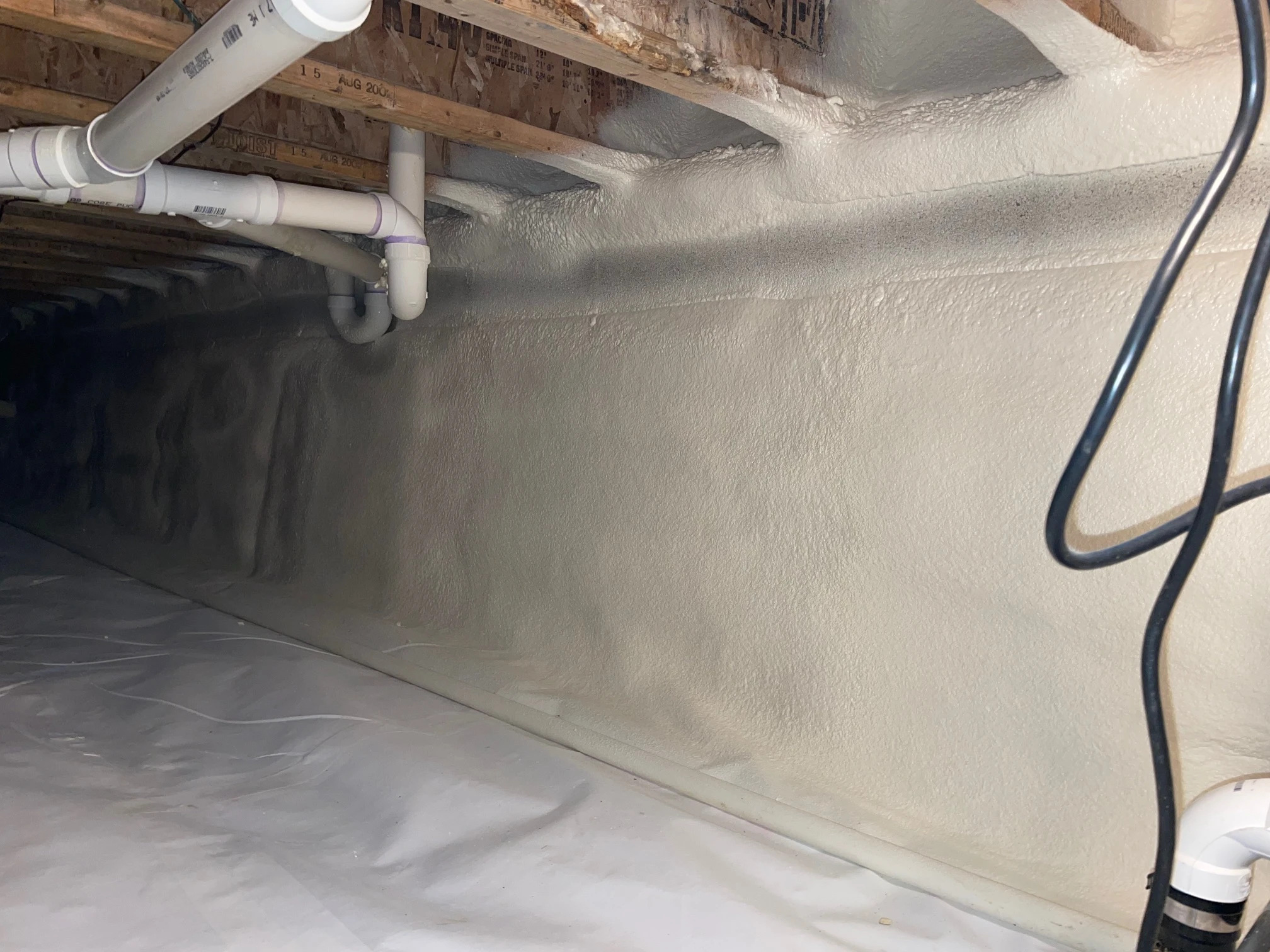
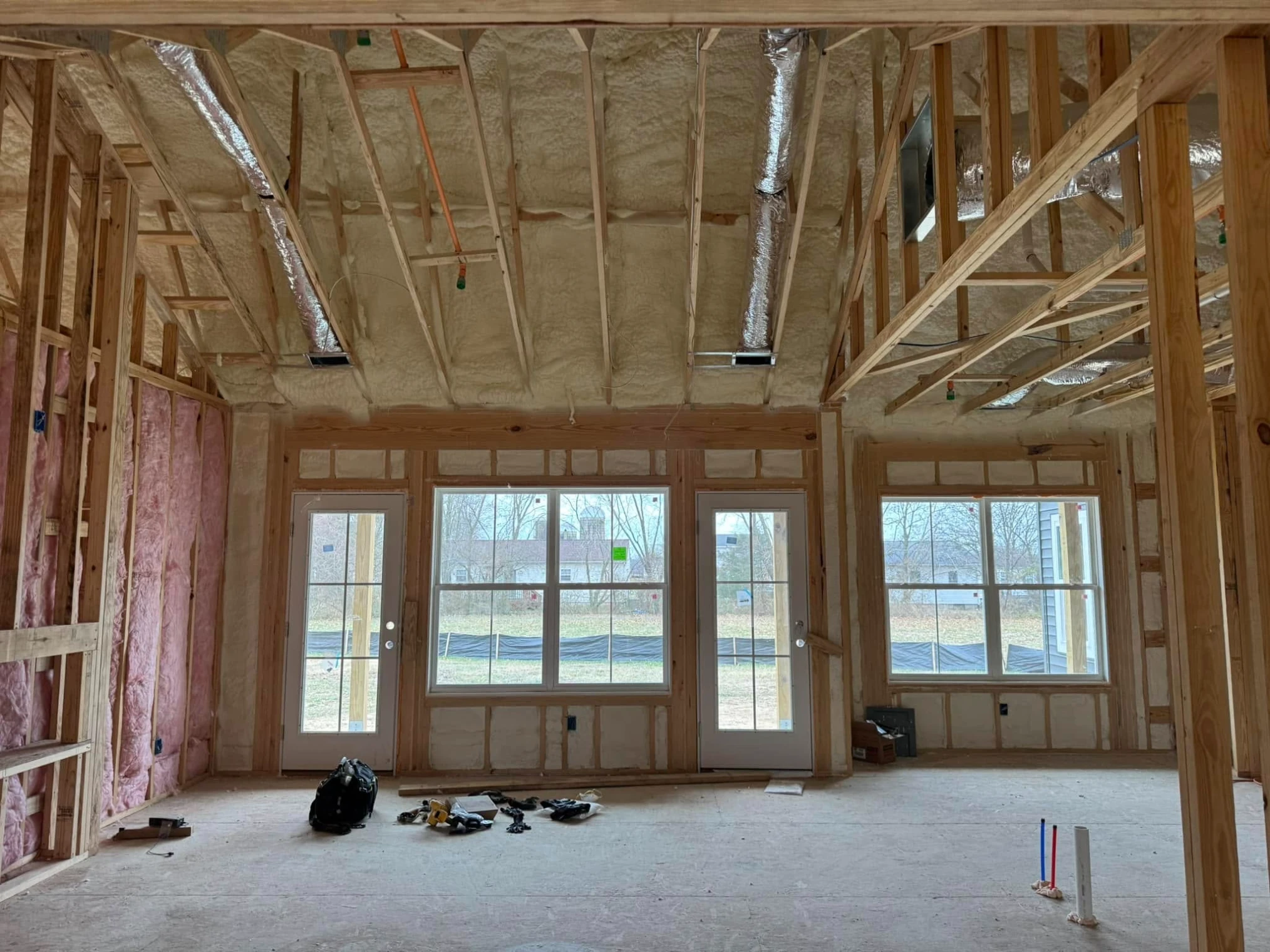
Severna Park homes require spray foam insulation throughout the year due to the region’s humid subtropical climate, which creates unique thermal challenges that traditional insulation materials cannot adequately address. The area experiences hot, humid summers with temperatures reaching 85°F and cold winters dropping to 25°F, creating a 60-degree temperature swing that demands superior air sealing and moisture control capabilities found exclusively in spray foam applications.
Spray foam insulation provides continuous protection against Maryland’s seasonal extremes by creating an airtight barrier that prevents energy loss, controls humidity infiltration, and maintains consistent indoor temperatures regardless of external weather conditions. Based on extensive field experience with Severna Park’s housing stock, homes without proper spray foam insulation experience 30-40% higher energy costs and frequent moisture-related issues that compromise structural integrity and indoor air quality.
Severna Park’s location near the Chesapeake Bay creates a microclimate characterized by high humidity levels averaging 65-75% year-round. This persistent moisture, combined with temperature fluctuations, creates ideal conditions for condensation within wall cavities and attic spaces. Traditional fiberglass and cellulose insulation materials absorb this moisture, losing their thermal resistance properties and creating environments conducive to mold growth.
The region’s clay-heavy soil composition contributes additional moisture challenges through foundation walls and basement areas. During spring and fall seasons, temperature differentials between soil and air temperatures can exceed 20 degrees, causing significant condensation issues in improperly insulated spaces.
Bonus Tip: Install spray foam insulation during moderate temperature periods (50-80°F) for optimal application conditions. Extreme temperatures can affect curing times and final performance characteristics.
| Season | Temperature Range | Humidity Level | Primary Challenge | Spray Foam Benefit |
|---|---|---|---|---|
| Summer | 75-90°F | 70-85% | Cooling load, moisture control | Prevents air infiltration, blocks humidity |
| Fall | 45-70°F | 60-75% | Temperature swings, condensation | Maintains consistent barrier |
| Winter | 25-45°F | 55-70% | Heat loss, ice dam formation | Superior thermal resistance |
| Spring | 50-75°F | 65-80% | Moisture management, allergens | Complete air sealing prevents infiltration |
According to the Department of Energy’s 2024 residential energy consumption data, homes in Maryland’s coastal regions consume 15% more energy than inland areas due to humidity-related HVAC strain. Spray foam insulation reduces this excess consumption by maintaining consistent indoor conditions.
| Insulation Type | R-Value per Inch | Air Permeability | Moisture Resistance | Lifespan |
|---|---|---|---|---|
| Open Cell Spray Foam | R-3.6 | Excellent seal | Good vapor barrier | 80+ years |
| Closed Cell Spray Foam | R-6.5 | Complete seal | Excellent vapor barrier | 80+ years |
| Fiberglass Batts | R-3.2 | Poor seal | Minimal resistance | 15-25 years |
| Cellulose | R-3.8 | Moderate seal | Poor resistance | 20-30 years |
Closed cell spray foam provides the highest thermal resistance while serving as both insulation and moisture barrier. Open cell spray foam offers excellent air sealing with sound dampening properties ideal for interior applications.
Spray foam insulation delivers consistent performance across Maryland’s variable climate conditions. During summer months, the material prevents conditioned air from escaping while blocking outdoor humidity from entering living spaces. Winter applications demonstrate even greater value, as the complete air seal eliminates drafts and thermal bridging that account for 25-35% of heating costs in traditional insulation systems.
The Chesapeake Bay area’s frequent weather pattern changes require insulation materials that perform reliably during rapid temperature transitions. Unlike traditional materials that compress and lose effectiveness over time, spray foam maintains its structural integrity and thermal properties regardless of temperature cycling.
Bonus Tip: Schedule spray foam installation during new construction or major renovation phases to maximize coverage areas, including hard-to-reach spaces like rim joists and irregular framing configurations.
Evaluate your home’s current insulation performance through a professional energy audit to identify specific problem areas and thermal bridging locations. Many Severna Park homes built before 1990 lack adequate air sealing in critical areas like attic spaces, basement walls, and around mechanical penetrations.
Consider the age and condition of your current insulation materials. Fiberglass batts installed more than 15 years ago often show signs of compression and moisture damage, particularly in humid environments like coastal Maryland. Cellulose insulation may have settled significantly, creating gaps in thermal protection.
Assess your home’s ventilation systems and indoor air quality concerns. Spray foam’s superior air sealing capabilities require proper mechanical ventilation to maintain healthy indoor environments. Existing ventilation systems may need upgrades to accommodate the improved building envelope performance.
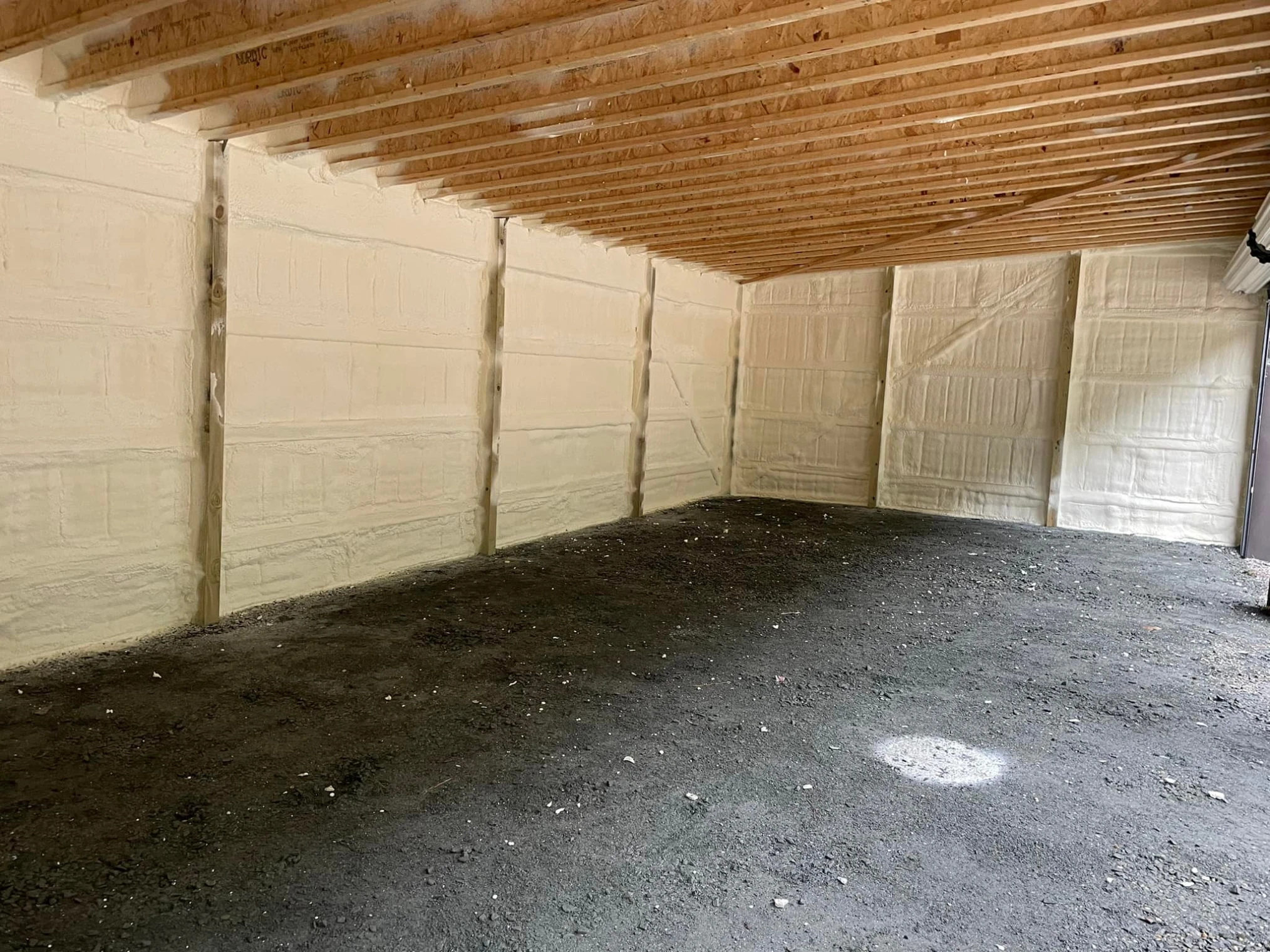
Peninsula Insulation, LLC specializes in comprehensive insulation solutions designed for Maryland’s challenging climate conditions:
Installation timing depends on your specific project scope and current energy efficiency concerns. Emergency installations during extreme weather periods provide immediate comfort improvements, while planned installations during moderate seasons allow for comprehensive whole-house approaches.
Spray foam excels in humid conditions by preventing moisture-laden air from infiltrating building cavities. The material maintains its thermal properties regardless of humidity levels, unlike traditional insulation that loses effectiveness when wet.
Attic spaces, basement walls, crawlspaces, and rim joist areas show the greatest performance improvements with spray foam applications. These locations typically experience the most significant air leakage and thermal bridging in traditional insulation systems.
Severna Park’s unique climate demands insulation solutions that address both thermal performance and moisture control challenges. Spray foam insulation provides year-round protection against energy loss while maintaining indoor air quality and structural integrity. The material’s longevity and consistent performance make it the most cost-effective solution for Maryland’s coastal climate conditions.
Evaluate your home’s specific needs by considering age, construction type, and current energy performance. Homes experiencing high utility bills, comfort issues, or moisture problems typically benefit significantly from spray foam upgrades.
Transform your Severna Park home’s energy efficiency with proven spray foam insulation solutions. Peninsula Insulation, LLC brings decades of experience addressing Maryland’s specific climate challenges through comprehensive insulation and air sealing services. Contact our team at (410) 770-2624 or reach out via email at wil@mdsprayfoam.net to schedule a detailed assessment of your home’s insulation needs and discover how spray foam technology can provide year-round comfort and energy savings.
Properly installed spray foam insulation maintains its thermal and air sealing properties for 80+ years without degradation. Unlike traditional materials that compress, settle, or absorb moisture over time, spray foam’s cellular structure remains stable throughout its lifespan.
Energy savings begin immediately after installation, with most homeowners experiencing 20-40% reductions in heating and cooling costs during the first billing cycle. The magnitude of savings depends on the previous insulation condition and the scope of spray foam coverage.
Spray foam eliminates the thermal bridging and air leakage that creates uneven roof temperatures leading to ice dam formation. By maintaining consistent attic temperatures, spray foam prevents the freeze-thaw cycles that cause ice accumulation and potential water damage.
Spray foam insulation requires no ongoing maintenance once properly installed. The material does not settle, compress, or degrade under normal building conditions. Annual visual inspections ensure mechanical systems or renovations have not compromised the insulation integrity.
Spray foam significantly outperforms traditional materials in coastal environments due to its moisture resistance and air sealing capabilities. Fiberglass and cellulose materials absorb moisture from humid air, losing thermal properties and creating conditions for mold growth.

